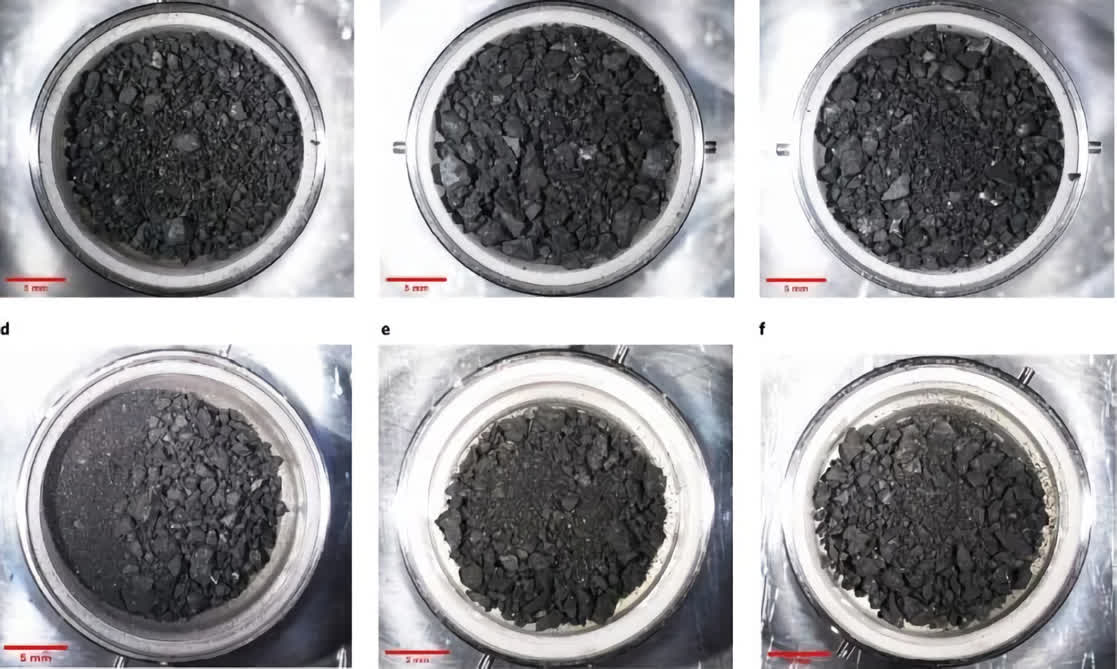How we got here: Japan’s Aerospace Exploration Agency (JAXA) back in 2019 successfully collected samples from near-Earth asteroid 162173 Ryugu using its Hayabusa2 spacecraft. The craft stored the samples in sealed containers and in November of the same year, started the return trip to Earth. In December 2020 as the craft passed by, it released the sample capsules, which entered our atmosphere and were successfully recovered in Australia. This week, we’re finally getting to see what scientists have discovered from studying the samples over the past year.
As Science Alert highlights, two papers recently published on the matter indicate Ryugu is dark and porous, and contains some of the oldest solar system material scientists have ever been able to get their hands on.
The first paper notes the C-type asteroid has an albedo (a measure of how much solar radiation it reflects) of 0.02. For comparison, most C-type asteroids fall in the 0.03 to 0.09 range. Asphalt is rated at 0.04. A rating of 0.02 albedo means the asteroid reflects just two percent of all solar radiation that hits it.
Ryugu also has a porosity of 46 percent, the paper further concluded.

(Samples returned by the Hayabusa2 probe)
Scientists with the second paper presented their findings regarding the composition of the recovered material, and found an extremely dark matrix that is possibly dominated by phyllosilicates. Other minerals including carbonates, iron and volatile compounds were also detected in the matrix.
Further analysis will no doubt shed even more light on the mysteries of Ryugu and perhaps, help astronomers better understand the early days of our solar system.
NASA, meanwhile, is in the middle of its own sample-return mission. In October 2020, NASA’s OSIRIS-REx (Origins, Spectral Interpretation, Resource Identification, Security, Regolith Explorer) spacecraft successfully sampled asteroid Bennu. The craft is expected to return the sample to Earth for analysis in late 2023.

